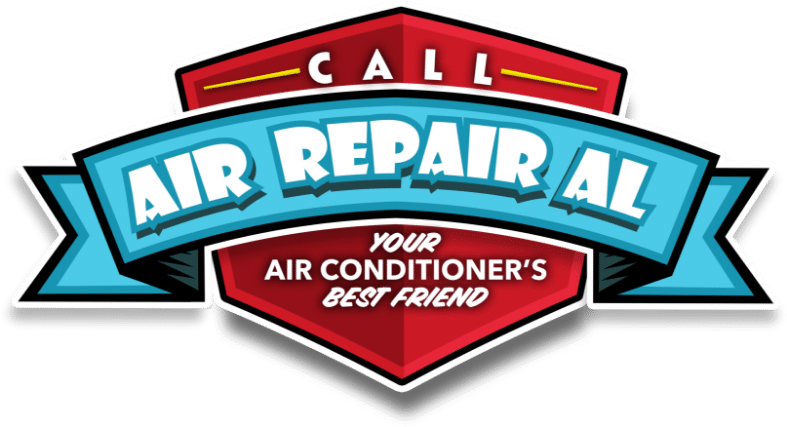
Preparing Your Cooling System After Pollen Season
Spring in Greenville, SC is beautiful. Trees are blooming, the weather’s warming up, and we finally get to open the windows again. But let’s be honest: spring pollen here is no joke. If you’ve lived in the Upstate for even one season, you know that yellow dust gets everywhere! On your car, your porch, and yes, even inside your HVAC system. We are going to help you combate this with our HVAC checklist.
So once the worst of the pollen settles down, it’s a smart time to give your HVAC system some TLC. A little spring maintenance now can help your air conditioner run more efficiently, improve your indoor air quality, and save you from sweating it out when that July heat kicks in.
Here is a Greenville homeowner’s guide to getting your HVAC system ready for the season ahead.
1. Change That Air Filter (Yes, Again)
Let’s start with the big one. During peak pollen season in Greenville (usually March through May), your HVAC filter works overtime. It traps not just dust and dander, but also oak, pine, and grass pollen which are some of the biggest allergy triggers around here.
Quick tip: If you haven’t changed your air filter since before the yellow wave rolled in, it’s probably clogged. And a clogged filter makes your system work harder, which raises your energy bill and reduces airflow.
What kind of filter should I use?
For allergy season, a MERV 11 or higher filter is a good idea, especially if someone in your home has seasonal allergies or asthma. Just make sure your system is rated for it.
If you’re not sure, give us a call at 864-777-1111 and we’ll help you check.
2. Clean the Outdoor Unit (It’s Been Through a Lot)
During spring, that outdoor condenser unit becomes a magnet for leaves, pollen, and yard debris. When it gets clogged up, airflow suffers and your AC can’t cool your home as efficiently.
Here’s how to clean it safely:
-
Turn off the power to the unit.
-
Remove leaves, twigs, and visible debris by hand.
-
Gently rinse the coils with a garden hose (from the inside out if possible).
-
Don’t use high-pressure spray—it can bend the fins.
When should I call a pro?
If the coils look greasy, packed with gunk, or if your system isn’t cooling like it used to, we recommend having a technician do a full coil cleaning. It’s safer, and more thorough.
3. Clear and Flush the Condensate Drain Line
If your AC unit has ever leaked water or randomly stopped working, there’s a good chance the culprit was a clogged condensate line. This small drain pipe helps remove moisture from your system, and in Greenville’s humid spring air, that pipe sees a lot of action.
Why it matters: When the line gets backed up, thanks to algae, dirt, or even mold, it can trigger your system’s safety switch and shut the whole thing down.
What you can do:
-
Locate the drain line (usually a white PVC pipe near the indoor unit).
-
Pour a 1:1 mix of white vinegar and warm water into the line every few months.
-
If you see standing water or rust in the pan, it’s time to call in a pro.
4. Give Your Evaporator Coil a Quick Check
The indoor coil (aka the evaporator coil) can collect a ton of grime, especially during high-pollen months. When this coil gets dirty, it can actually freeze over, leaving your home hot and sticky.
Signs of trouble:
-
Weak airflow
-
Warm air coming out of the vents
-
Ice buildup on the coil or refrigerant line
Most homeowners can’t access the coil directly (it’s usually behind a panel), but if your air conditioner isn’t performing like it should, or if your energy bill suddenly spikes, it’s worth scheduling a coil inspection during your spring tune-up.
5. Test Your Thermostat Before It Gets Really Hot
It’s easy to forget about your thermostat until the house feels like a sauna. But now’s a great time to check that it’s responding properly and reading the right temperature.
What to check:
-
Is it switching from heating to cooling mode correctly?
-
Is the temperature reading accurate?
-
Are the batteries still good (for non-hardwired models)?
-
Are your scheduled settings still appropriate for the season?
Thinking about upgrading? Smart thermostats like Ecobee and Nest not only learn your habits but can also help lower energy costs, especially during Greenville’s hot, humid summers.
6. Listen for Any Strange Noises
This might sound basic, but paying attention to how your HVAC system sounds is a great way to catch small problems before they turn into big ones.
What to listen for:
-
Rattling or buzzing from the outdoor unit
-
Hissing or bubbling sounds (could mean a refrigerant leak)
-
Squealing or grinding from the indoor blower motor
If something doesn’t sound right, don’t ignore it. Most HVAC issues are cheaper to fix early, before parts start wearing out or systems get damaged.
7. Schedule a Spring HVAC Tune-Up
Even if everything seems to be working fine, a seasonal inspection can uncover hidden issues like low refrigerant, electrical wear, or airflow imbalances that could affect your comfort or energy efficiency later.
What a good spring tune-up should include:
-
Coil and condenser cleaning
-
Refrigerant level check
-
Electrical connection tightening
-
Blower and motor inspection
-
Filter check
-
Drain line flush
At Air Repair AL of Greenville, our technicians are trained to look for local problems, like moisture buildup, pollen impact, and system wear from SC’s fluctuating spring temps.
It’s Not Just a Checklist – It’s a Peace of Mind Before Summer Hits
If your air conditioner struggled last summer, or you’ve noticed more dust and allergies inside lately, don’t wait until July to find out there’s a problem. Greenville’s weather moves fast and early prep can mean the difference between a cool, comfortable summer and a hot, frustrating one.
Need help with your spring HVAC prep?
We’re local, we know Greenville’s quirks, and we’re happy to check out your system, even if it’s just for peace of mind.
Call 864-777-1111 for help with your HVAC system performance or contact us online with any questions.

